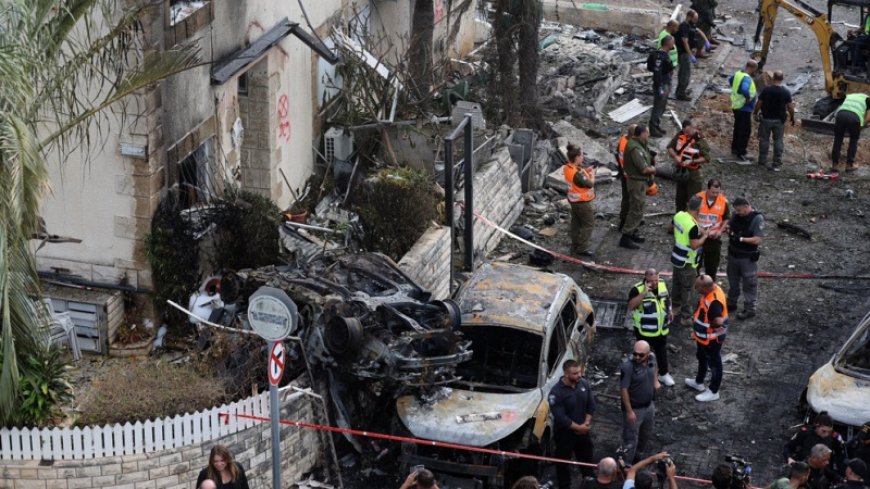Hezbollah Strikes Back: Aiming for Israel's Rafael Arms Factory amid Growing Tensions
Claiming credit for an attack on Israel's Rafael weaponry manufacture facility in Haifa, Lebanon's Hezbollah movement has marked the strike as a "initial response" to a recent Israeli military offensive in a notable escalation of hostilities in the area. This action emphasizes the more unstable circumstances in which both sides engage blows in a conflict showing no indication of abating.

Claiming credit for an attack on Israel's Rafael weaponry manufacture facility in Haifa, Lebanon's Hezbollah movement has marked the strike as a "initial response" to a recent Israeli military offensive in a notable escalation of hostilities in the area. This action emphasizes the more unstable circumstances in which both sides engage blows in a conflict showing no indication of abating.
Underlining its larger mission to assist Palestinians in Gaza during Israel's continuous military operations, Hezbollah declared on Sunday that it had destroyed the Rafael facility, located in the Zevulun area north of Haifa. Declared in a statement, the organization said the attack was a response to the "brutal killings" carried out by Israeli soldiers across Lebanon and an act of solidarity with the Palestinian resistance.
The context of this battle is shaped by a particularly catastrophic event earlier this week, in which hundreds of electronic communication devices—including pagers and walkie-talkies used by Hezbollah members—were targets of coordinated explosives across Lebanon. With estimates of 42 deaths and around 3,500 injuries, these blasts claimed a terrible toll of life. According to Lebanese officials, these devices were altered before arriving in Lebanon, suggesting a sophisticated operation most likely directed by Israeli intelligence services.
American media sources have brought attention to the possible involvement of the Israeli army and the Mossad in this coordinated strike, therefore generating questions over the degree of military cooperation that can disturb the area even more. Such events not only heighten concerns about reprisals but also highlight the complex network of military operations and intelligence gathering supporting the continuous battle.
Reacting to these provocations, Hezbollah has promised to exact revenge against what it regards as the "Zionist government," which it charges of running a genocidal campaign against Palestinians in the Gaza Strip under blockade. Hezbollah officials' language has grown more rebellious, pledging that the group will do all required actions to safeguard their people and interests.
Targeted in this most recent attack, the Rafael Advanced Defense Systems are among Israel's three biggest arms producers, well-known for creating vital military technologies including the Iron Dome missile defense system and several advanced armaments. The strike on Rafael not only compromises Israel's defensive capacity but also reminds us of the high stakes characterizing the regional arms race, in which military might and technological superiority are always in conflict.
Aware that more bloodshed can have disastrous effects not only for Lebanon and Israel but also for the whole Middle East, the international community keeps close eye as tensions rise. Unless diplomatic efforts are restored to solve the fundamental problems fueling this lengthy conflict, the cycle of reprisals looks destined to continue. The possibility for peace is still low while both sides are engaged in a perilous game of brinkmanship, leaving people caught in the crossfire and the area precursively unstable.













































